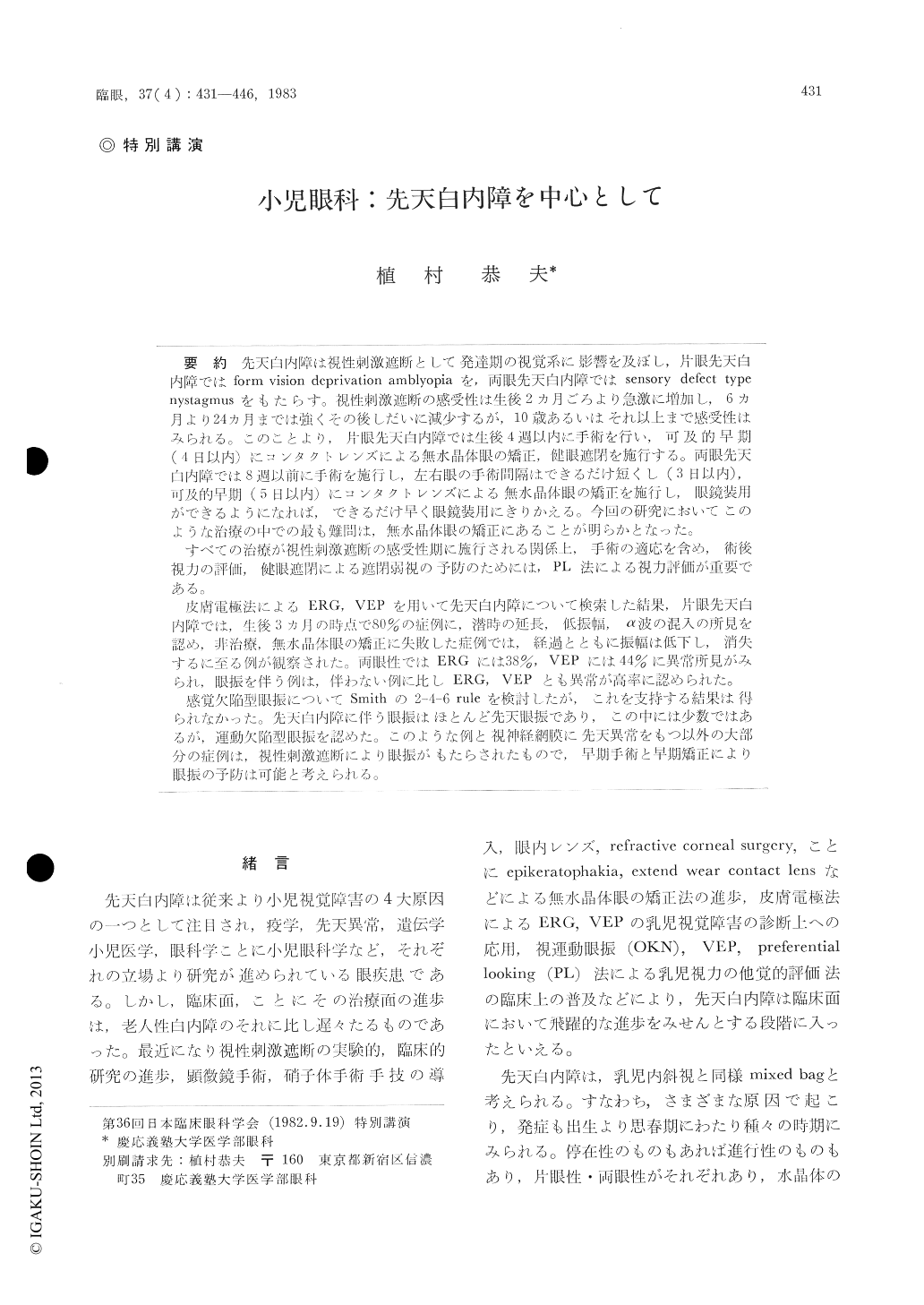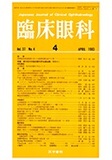Japanese
English
- 有料閲覧
- Abstract 文献概要
- 1ページ目 Look Inside
先天白内障は視性刺激遮断として発達期の視覚系に影響を及ぼし,片眼先天白内障ではform vision deprivation amblyopiaを,両眼先天白内障ではsensory defect typenystagmusをもたらす。視性刺激遮断の感受性は生後2カ月ごろより急激に増加し,6カ月より24カ月までは強くその後しだいに減少するが,10歳あるいはそれ以上まで感受性はみられる。このことより,片眼先天白内障では生後4週以内に手術を行い,可及的早期(4日以内)にコンタクトレンズによる無水晶体眼の矯正,健眼遮閉を施行する。両眼先天白内障では8週以前に手術を施行し,左右眼の手術間隔はできるだけ短くし(3日以内),可及的早期(5日以内)にコンタクトレンズによる無水晶体眼の矯正を施行し,眼鏡装用ができるようになれば,できるだけ早く眼鏡装用にきりかえる。今回の研究においてこのような治療の中での最も難問は,無水晶体眼の矯正にあることが明らかとなった。
すべての治療が視性刺激遮断の感受性期に施行される関係上,手術の適応を含め,術後視力の評価,健眼遮閉による遮閉弱視の予防のためには,PL法による視力評価が重要である。
Congenital cataract interferes with the develop-ment of the visual system. Form vision depriva-tion amblyopia may be caused by monocular con-genital cataract and 'sensory defect type nystag-mus' may be produced by binocular congenital cataract.
While the sensitive period for visual deprivation in humans is not as yet clearly determined, our data in 44 non-operated cases with monocular congenital cataract suggested that the sensitive period lasts up to 10 years of age. Within this period, the most susceptible stage is from the third to 24th months of age.

Copyright © 1983, Igaku-Shoin Ltd. All rights reserved.


